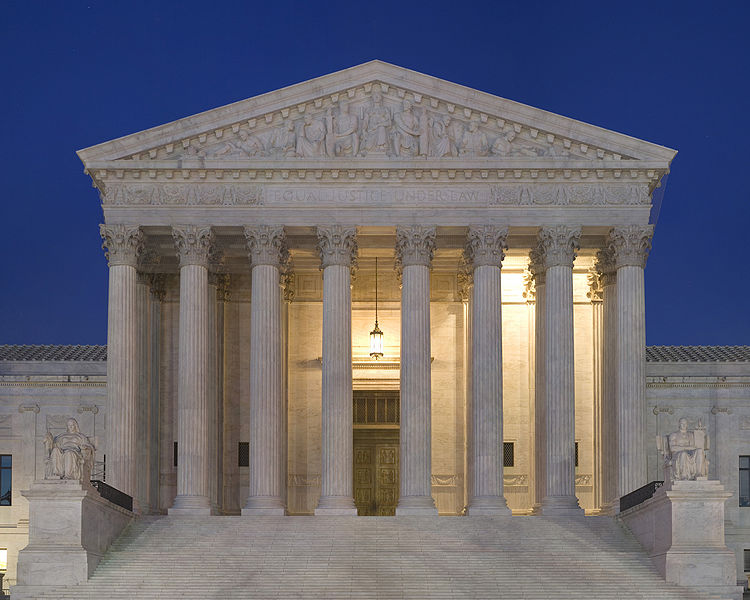
The U.S. Supreme Court released its October argument calendar for the 2019-2020 term. The court will begin the new term on October 7. It will hear argument in 14 cases, some of which are consolidated, totaling nine hours of argument between October 7 and October 16.
As of June 28, 2019, the court had agreed to hear 44 cases in the upcoming term.
October 7
- Kahler v. Kansas asks whether the Eighth and Fourteenth Amendments permit a state to abolish the insanity defense.
- Peter v. NantKwest asks whether applicants challenging a patent rejection under Section 145 of the U.S. Patent Act must pay attorneys' fees for the United States Patent and Trademark Office.
- Ramos v. Louisiana asks whether the Fourteenth Amendment fully incorporates the Sixth Amendment guarantee of a unanimous verdict.
October 8
- Bostock v. Clayton County, Georgia (consolidated with Altitude Express Inc. v. Zarda) asks whether discrimination on the basis of sexual orientation constitutes prohibited employment discrimination "because of ... sex" within the meaning of Title VII of the Civil Rights Act of 1964.
- R.G. & G.R. Harris Funeral Homes v. EEOC asks whether Title VII prohibits discrimination against transgender people based on (1) their status as transgender or (2) sex stereotyping under previous Supreme Court precedent.
October 15
- Financial Oversight and Management Board for Puerto Rico v. Aurelius Investment, LLC (consolidated with Aurelius Investment, LLC v. Puerto Rico, Official Committee of Debtors v. Aurelius Investment, LLC, United States v. Aurelius Investment, LLC, and UTIER v. Financial Oversight and Management Board for Puerto Rico) asks whether the Appointments Clause of the U.S. Constitution governs the appointment of members of the Financial Oversight and Management Board for Puerto Rico.
October 16
- Kansas v. Garcia asks (1) whether the Immigration Reform and Control Act (IRCA) preempts states from using information from federal I-9 forms to prosecute a person when that same information is on non-IRCA forms and (2) whether the IRCA preempts Kansas' prosecutions of Ramiro Garcia, Donaldo Morales, and Guadalupe Ochoa-Lara.
- Rotkiske v. Klemm asks whether the statute of limitations on the Fair Debt Collection Practices Act begins to run when a potential plaintiff discovers the violation or when the would-be defendant violates the act.
- Mathena v. Malvo asks whether a Supreme Court decision prohibiting mandatory sentences of life without parole for juveniles applies when those sentences are mandatory.
Additional reading:


